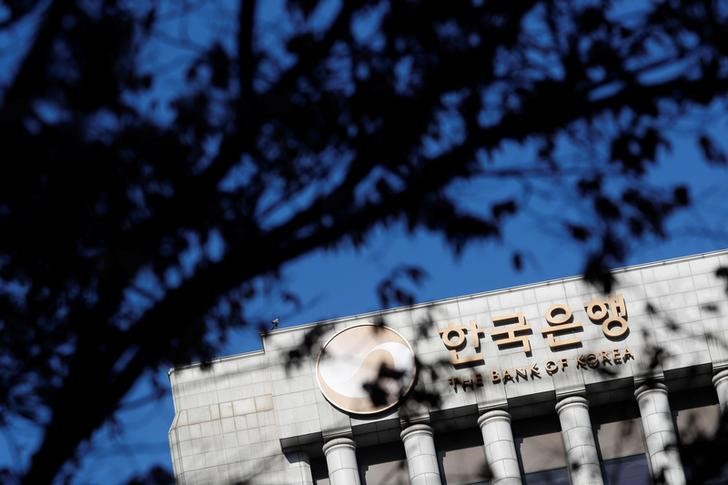(Bloomberg) -- South Korea raised interest rates on Thursday, becoming the first major Asian economy to start exiting record-low borrowing costs as financial risks pose a threat to the economy.
The Bank of Korea’s decision to raise its seven-day repurchase rate to 0.75% was predicted by nine of 20 analysts surveyed by Bloomberg. The rest had expected no change at 0.5%. The BOK will shortly release an update to its economic outlook.
The move shows the focus of monetary policy in Korea has shifted from supporting the economy to curbing a debt-driven asset bubble that risks spiraling out of control. How the BOK’s tightening move affects its economy and markets will be closely watched by other central banks seeking to chart a way out of pandemic-era stimulus.
A recent surge in infections and strict curbs on activity had some economists expecting the BOK to follow the example of the Reserve Bank of New Zealand and postpone tightening to a later date. But board members likely saw beyond the bad optics of dialing back support during a worsening health predicament and concluded that the economic hit from the latest outbreak would be manageable.
“The BOK’s concerns about financial imbalances may outweigh the downside risk to economic growth from the Delta variant,” Citigroup Inc (NYSE:C). economists Kim Jin-wook and Yoon Jeeho wrote before the decision. A second rate increase is likely to come in November as the latest wave gradually subsides, vaccinations pick up and housing prices continue to rally, they wrote.
Recent data suggest the Korean economy has largely held up amid a surge in local and global delta cases. Exports have rallied so far in August, business confidence has strengthened and optimism still prevails among consumers.
Read more: Korea Household Debt Posts Record Gain as Rate Hike Nears
Meantime, policy makers have become increasingly troubled by the prospect of financial imbalances destabilizing the economy, with the presidential chief of staff joining the drumbeat of warnings. Household debt growth is setting new records, adding fuel to an already overheated housing market and other assets.
Korea was the region’s front runner in tightening in 2017, following a series of rate increases by the Federal Reserve. Compared with then, the BOK’s shift now comes before the Fed’s tapering, another indication of the level of concern among local policy makers to bring overheating markets to heel.
Lee’s comments at a media conference later Thursday will be scrutinized for hints on the pace of tightening. Any dissenting votes calling for a hold would suggest the bank will at least pause before raising rates again. A unanimous vote, on the other hand, would show strong support for tightening, boosting bets for another near-term move.
The BOK’s updated economic outlook will offer an assessment on how it views the risks from the global delta variant outbreak, which has halted factory operations in Vietnam and some other countries that play a crucial role in Korea’s manufacturing chain. The central bank in May forecast 4% growth and 1.8% inflation for this year.
The rate increase could also give the won a leg up. The currency has led losses against the dollar in Asia, weakening 1.5% so far this month through Wednesday. Swap markets are indicating expectations for two rate increases over the next six months.
(Updates to add market expectations.)
©2021 Bloomberg L.P.
